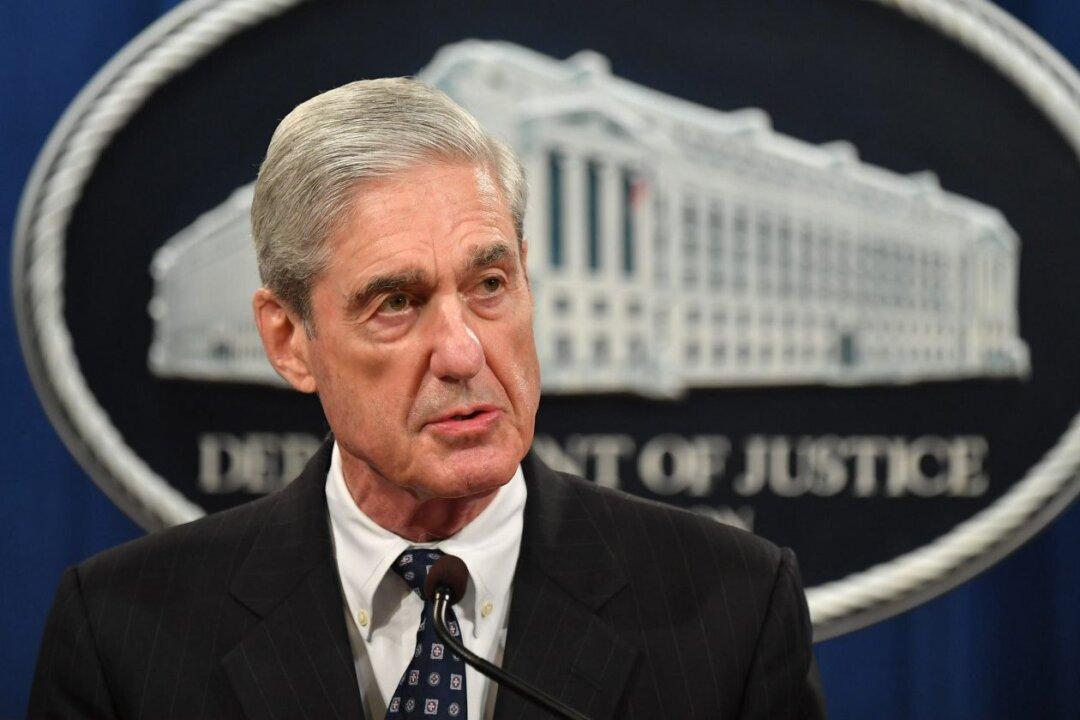The Department of Justice and the special counsel’s office released a joint statement on May 29 hours after special counsel Robert Mueller spoke for the first time since submitting his report to Attorney General William Barr.
“The Attorney General has previously stated that the Special Counsel repeatedly affirmed that he was not saying that, but for the OLC (Office of Legal Counsel) opinion, he would have found the President obstructed justice. The Special Counsel’s report and his statement today made clear that the office concluded it would not reach a determination—one way or the other—about whether the President committed a crime,” said Kerri Kupec, spokeswoman for the Department of Justice and Peter Carr, spokesman for the special counsel’s Office, in the joint statement.





